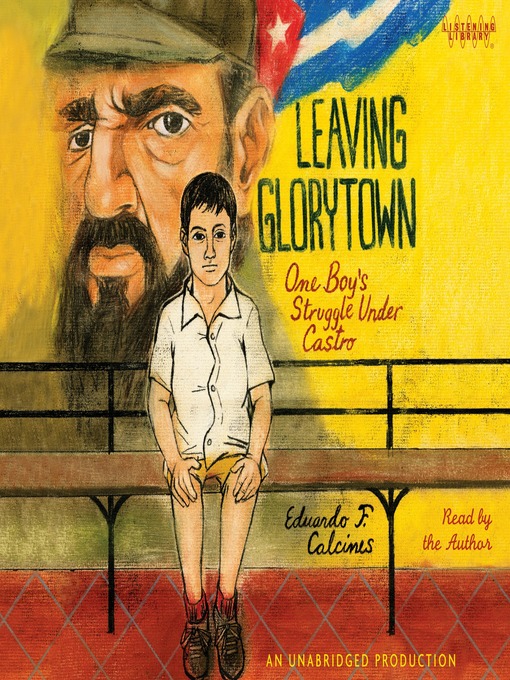1 of 1 copy available
1 of 1 copy available
After his family applied for an exit visa to immigrate to America when Eduardo was ten, he was ridiculed by his schoolmates and even his teachers for being a traitor to his country and, worse, his father was sent to an agricultural reform camp to do hard labor for fifteen hours a day as punishment for wanting to leave. During the years to come, Eduardo hoped with all his might for one thing: that their exit visas would be granted before he turned fifteen, the age at which he would be drafted into the army.
In this gripping memoir, Eduardo F. Calcines recounts his boyhood in Glorytown, a neighborhood in the city of Cienfuegos, and chronicles the conditions that led him to wish above all else to leave behind his beloved extended family and his home for a chance at a better future.
-
Creators
-
Publisher
-
Awards
-
Release date
April 6, 2010 -
Formats
-
OverDrive Listen audiobook
- ISBN: 9780307710178
- File size: 181137 KB
- Duration: 06:17:22
-
-
Languages
- English
-
Levels
- ATOS Level: 4.7
- Interest Level: 9-12(UG)
- Text Difficulty: 7-12
-
Reviews
-
AudioFile Magazine
Eduardo's young life in 1950s Cuba is idyllic. But when Castro comes to power in 1959, things change radically. There are food shortages, and Eduardo's father is sent to a work camp. Then, after waiting many years for a visa to leave the country, the Calcines family is finally freed, shortly before Eduardo's fifteenth birthday. The author narrates his memoir in a calm, weary voice. He softens it for female relatives, makes it sound appropriately silly for boyhood friends, and uses a rough tone for uncles and the authorities. Humor leavens the harshness; his family lived through a terrible time, but he was a young boy, running with friends and getting into trouble. The story stirs strong emotions, but Calcines is never overly dramatic with his writing or his narration. An author interview is included. G.D. (c) AudioFile 2010, Portland, Maine
-
Formats
- OverDrive Listen audiobook
Languages
- English
Levels
- ATOS Level:4.7
- Interest Level:9-12(UG)
- Text Difficulty:7-12
Loading
Why is availability limited?
×Availability can change throughout the month based on the library's budget. You can still place a hold on the title, and your hold will be automatically filled as soon as the title is available again.
The Kindle Book format for this title is not supported on:
×Read-along ebook
×The OverDrive Read format of this ebook has professional narration that plays while you read in your browser. Learn more here.

